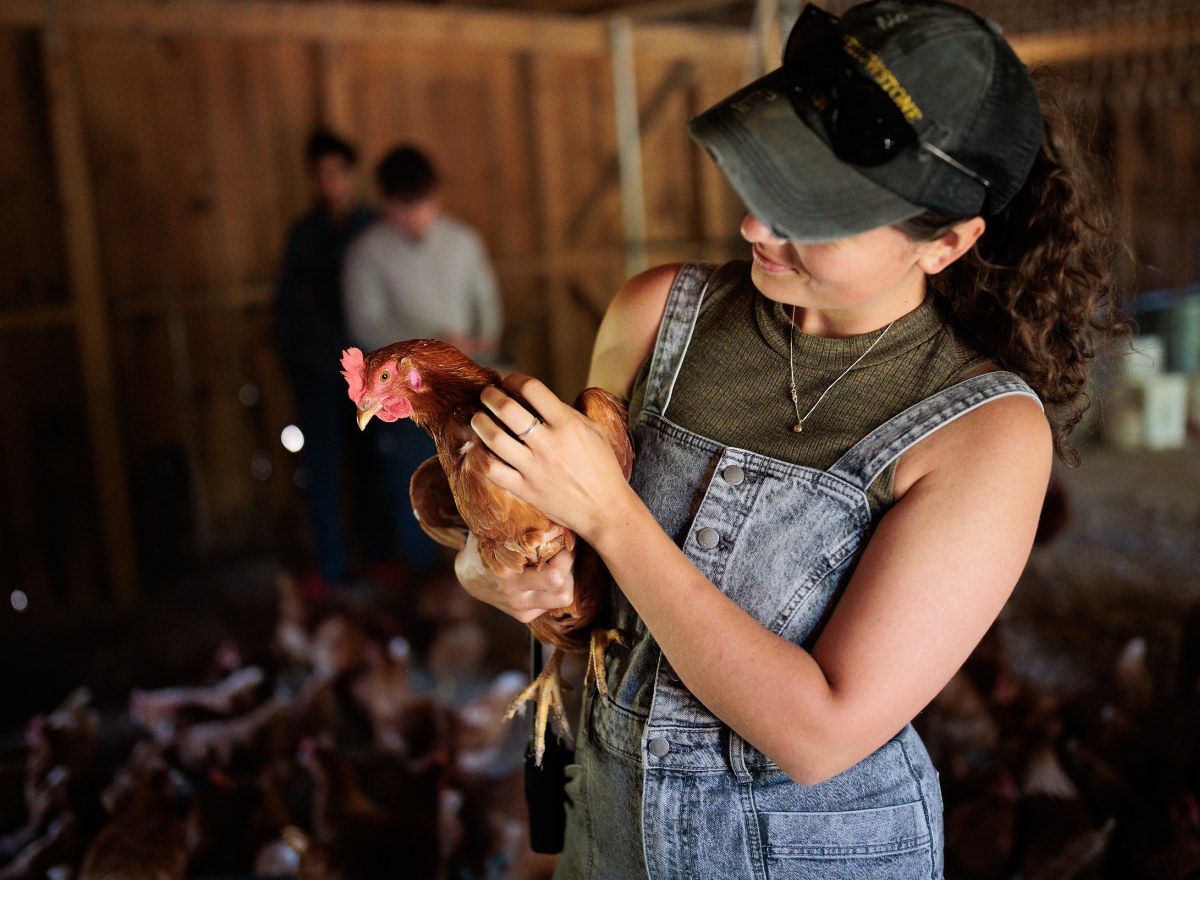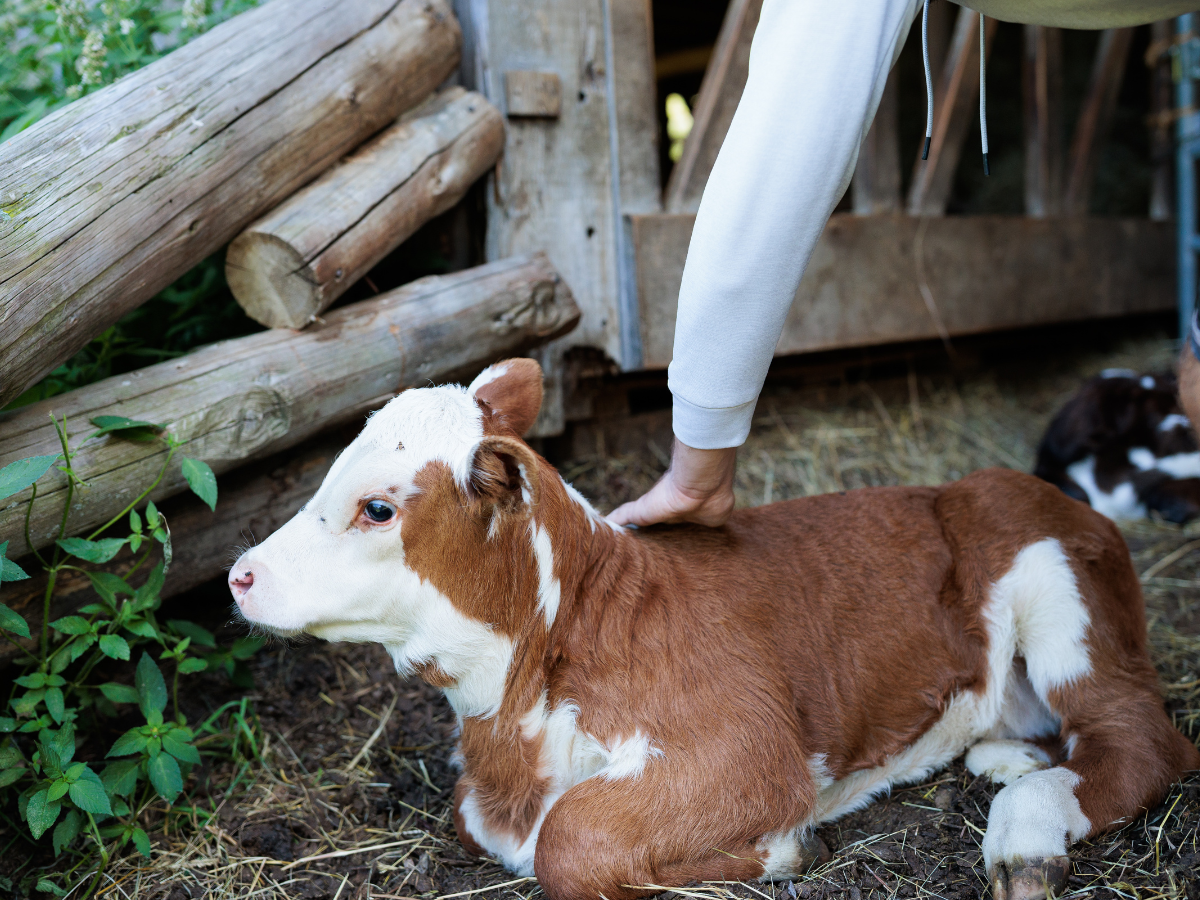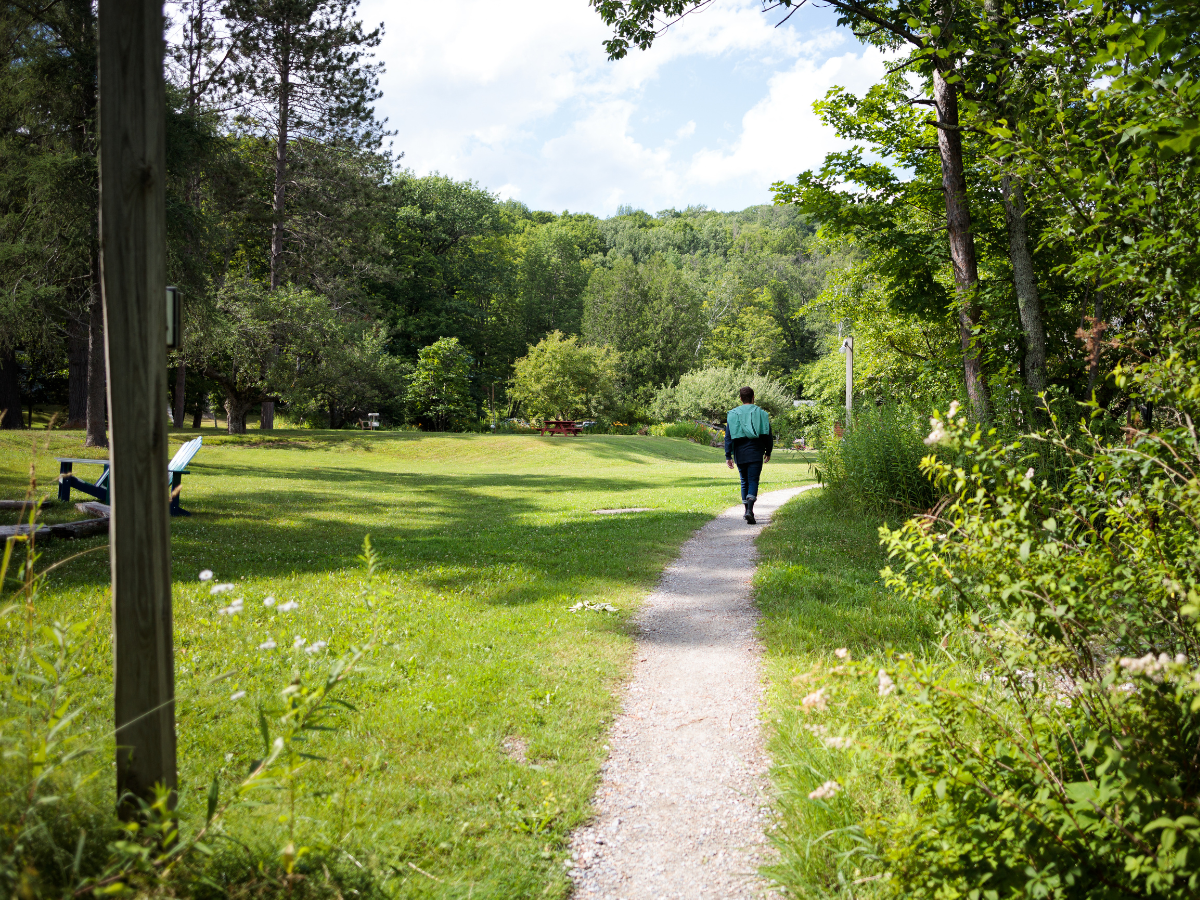 Credit: Ben Deflorio
Credit: Ben Deflorio
Anyone who struggles with mental health and substance abuse—or loves someone who does—knows the path to healing is often long, filled with ups and downs. Yet, the solution-focused, brief interventions favored by insurance companies can imply that successful recovery is time-limited.
Amid a national mental health crisis, one residential therapeutic community in the Green Mountains of Vermont is asking its residents to slow down and do the work.
Spring Lake Ranch has operated since 1932, and in that time, the core program has remained much the same. Adults experiencing mental health and substance-use challenges live and work alongside staff to run a functioning farm.
The Ranch’s model is a Therapeutic Work Program, which combines several evidence-based practices with psychiatric care to prepare residents for life after treatment. The model requires time to reap the full benefits, with a recommended stay of at least six months. Some residents stay for multiple years.
Work therapy is at the program’s heart. Broadly popularized in the eighteenth century, its philosophical roots can be found as far back as Plato’s techne and the Buddhist practice of Zen cultivation. It is a powerful intervention for residents who feel stuck in a cycle of hopelessness or failure. By engaging in meaningful work, they find purpose and connect to something larger than themselves. When they do something they never thought they could—helping to birth a calf, for instance, or chopping down a 50-foot-tall tree—their self-worth and self-efficacy surge. This cultivates hope, which is the key to long-term recovery.
The other theory at the core of the Ranch’s approach is milieu therapy, a flexible and holistic method of care. Milieu therapy is essentially living an engaged life within a supportive, structured community. It incorporates daily living activities with relationship-building and routines that provide consistency and clear expectations. Within the milieu, residents and caregivers work together to explore and model healthy functioning. Early research centered on patients living with schizophrenia, demonstrated marked reductions in violent and inappropriate behaviors. Loneliness is a major risk factor in mental health, so this type of community can also benefit people struggling with mood disorders, addiction, depression, anxiety, or failure to launch.
Work and the milieu are foundational for the Ranch’s approach, but the therapeutic philosophies don’t stop there. Situated in an undeveloped mountain-top forest, with a pristine, spring-fed lake and Vermont’s distinct seasonality, the Ranch is a great place to experience the positive effects of nature therapy. Some of the researched benefits of nature therapy include decreased cortisol levels (the stress hormone) and increased absorption of Vitamin D, both of which reduce risk factors for physical health problems. Regular time in nature is also shown to improve creativity and problem-solving skills, mindfulness, and overall mood. Outdoor activities help residents exercise, build trust in their abilities, and nurture social relationships through shared experience. With similar benefits as nature therapy, animal-assisted therapy is also part of daily life at the Ranch. Caring for livestock is an important function of the farm, with frequent opportunities for residents to engage with other animals as well, including dogs, cats, donkeys, and horses.
 Credit: Ben Deflorio
Credit: Ben Deflorio
Residents also receive one-on-one clinical therapy, group therapy, nutritional counseling, recovery programming, psychiatric care, and medication management. The model is not about replacing one standard of care with another but rather marrying traditional and alternative methods into a single approach. It allows residents to take their time not only to reach a baseline level of functioning, but to encounter and resolve new challenges and push through the plateau that often leads to relapse.
The Ranch currently has two step-down programs that provide residents even more time to prepare themselves for life after treatment. An ongoing Capital Campaign seeks to expand this programming by building a mini-neighborhood on the property, with specialized assistance for residents who are ready for more independence. The new transitional program will allow residents to stay at the Ranch for longer periods of time at a lower-price point. They will learn independent living skills and receive assistance with finding employment.
For nearly a century, Spring Lake Ranch has observed success stories. These successes, defined by each resident’s individual needs and goals, have been difficult to quantify. A few years ago, the Ranch began measuring outcomes using the Daily Living Activities (DLA-20) assessment. Collecting results from 2019 – 2021, they learned just how impactful the Therapeutic Work Program can be. The DLA-20 identifies levels of functioning across twenty domains, including personal relationships, drug and alcohol use, grooming, and time and money management. On the 7-point scale, 1 represents extremely severe impairment, and 7 represents no impairment.
Taken together, the Ranch’s respondents showed clinically significant improvements in global functioning across all twenty domains, with an average improvement of 1.21 points. Individually, 76% of residents improved in a domain by as much as 4.3 points. The benchmark for clinically significant results is that 35% of respondents improve by at least half a point, so the Ranch far exceeded the benchmark for success.
The Ranch hopes this data will be the first step toward increasing support from insurance companies and health agencies for models like their Therapeutic Work Program. They also hope the new transitional program, funded by their Capital Campaign, will serve as a blueprint for treatment centers across the country.
 Credit: Ben Deflorio
Credit: Ben Deflorio
Mental health is a lifelong journey; individuals who experience mental illness and addiction will continue to manage symptoms long after treatment. Spring Lake Ranch has found that residents will have stronger success when they’re provided individualized, holistic care at their own pace. This results in long-term benefit not just for individual residents but for the communities they return to as well. Investment in different approaches to mental health care is an investment in a functioning society.
More information about Spring Lake Ranch and their current Capital Campaign can be found at springlakeranch.org. Donations can be made online or by emailing Development & Communications Director Rose McCracken at rosem@springlakeranch.org.
